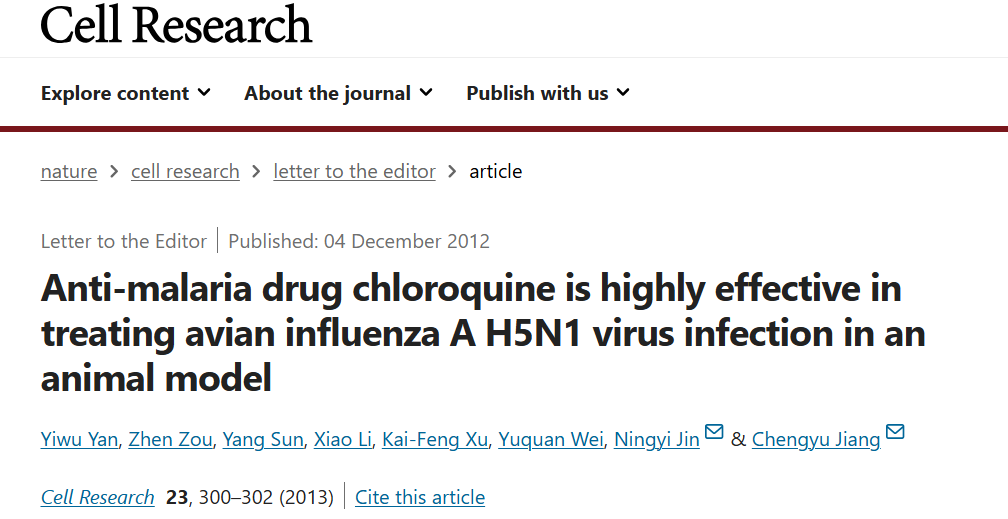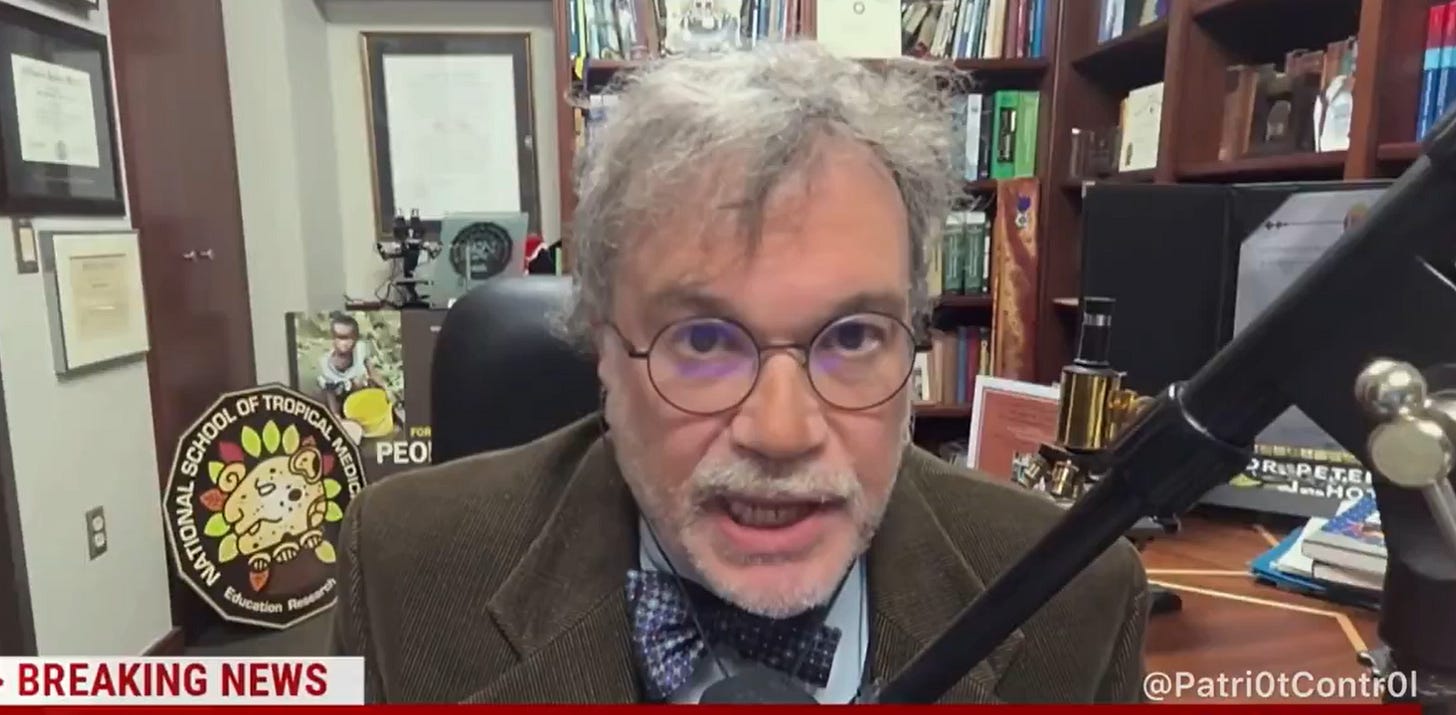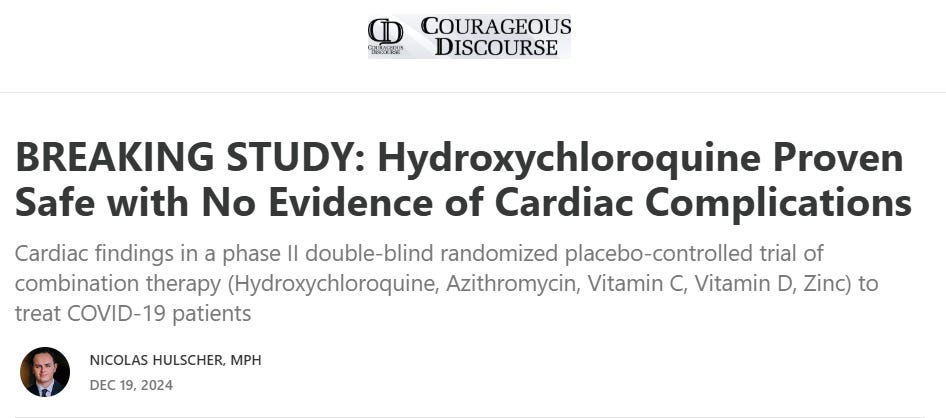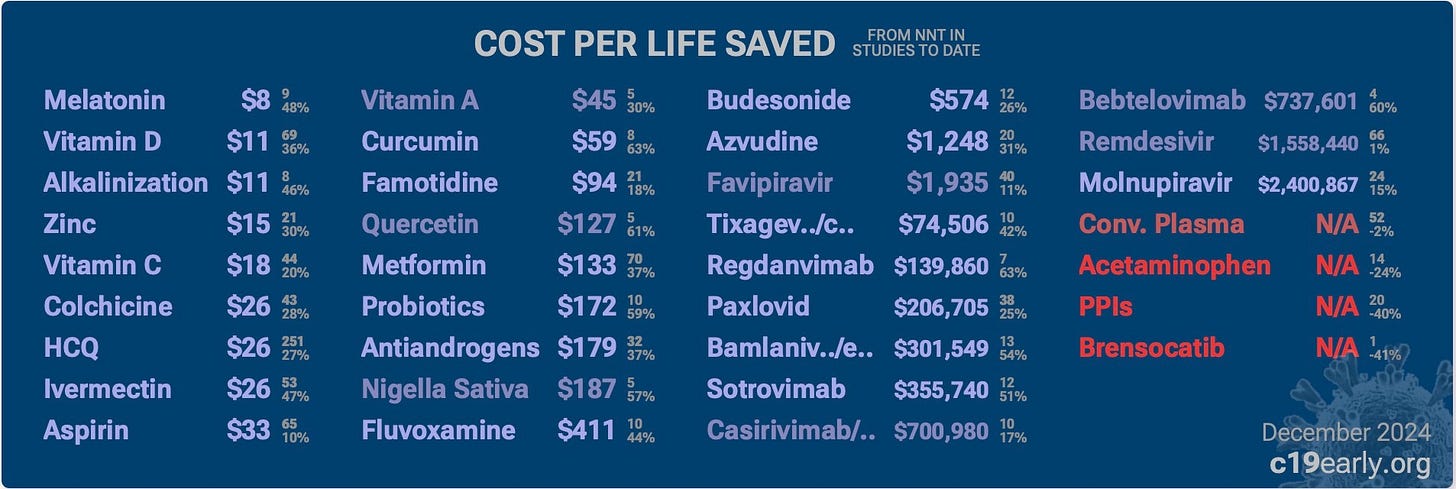HCQ's Life-Saving Effect Against H5N1 Avian Flu & Cancer
Hydroxychloroquine is a Powerful Anti-Viral and Anti-Cancer Drug
Governor Gavin Newsome recently declared a State of Emergency in California citing H5N1 as a potential threat. This has been widely criticized as being premature as there has been only one human United States case of severe disease, this being a Louisiana man.
However, for those who have been paying close attention, former CDC Director Robert Redfield and others in the potential know have warned that a bird-flu pandemic is in the cards, whether natural or produced by gain-of-function means.
Peter Hotez ominously predicted a series of pandemics set to strike the US in January of 2025, including bird flu.
Unfortunately, H5N1 is more lethal to human beings with some estimates running as high as a 50% potential mortality rate.
Regardless of how this potential pandemic threat manifests itself, it would be useful for all to be prepared, and this provides an excellent opportunity to get ahead of the curve by looking at potential repurposed drugs that can be effective.
A look at the literature is reassuring, as no one should be forced into accepting risky, unproven, and potentially unsafe genetic vaccines when safe, proven, repurposed drugs exist. Certainly, if we have learned anything these past four years, it is that repurposed drugs can be highly effective not just in Covid and Cancer, but in the majority of viruses.
H5N1, also known as bird flu, has been studied, and the repurposed drug studies are most reassuring in this regard. First and foremost, the drug HCQ, otherwise known as Hydroxychloroquine, a derivative of Chloroquine, has been safely used for decades to treat Lupus and Rheumatoid Arthritis. This 2012 study found that CQ improved the mice survival rate from 0% at day number 8 to 70%.
Furthermore, the authors noted significantly lower lung edema in the CQ-treated group. There were fewer infiltrating leukocytes [white blood cells] in the treatment group.
The authors summarized:
“Taken together, our results demonstrate that CQ, a known autophagy inhibitor that is in clinical use, could efficiently ameliorate acute lung injury and dramatically improve the survival rate in mice infected with live avian influenza A H5N1 virus.”
They also wrote that derivatives of CQ [such as HCQ] should be evaluated as a candidate drug for H5N1-infected patients:
“This notwithstanding, our study strongly suggests that CQ (and potentially its derivatives) should be evaluated as a candidate drug for clinical treatment of H5N1-infected patients. Moreover, a systematic screening of common clinical drugs for potential autophagy inhibitors may lead to the identification of other novel treatments against avian flu.”
Dr. McCullough’s Courageous Discourse Substack platform recently discussed the safety profile of HCQ and found it to be safe without evidence of cardiac complications.
“Our study was published just as the Academic Publishing Cartel unethically retracted the study, Hydroxychloroquine and azithromycin as a treatment of COVID-19: results of an open-label non-randomized clinical trial. This landmark study, which demonstrated hydroxychloroquine's benefit against COVID-19, was published for four years and cited by 6,713 scientists, physicians, and researchers before being unjustly removed. One way the Biopharmaceutical Complex promotes their genetic injections is by censoring and attacking cheaper, safer, and more effective treatments like hydroxychloroquine.”
What is interesting is the recent analysis of the cost per life saved in COVID-19. If one refers to Nicolas Hulscher’s recent table, we can see that 26 dollars was the cost of one life saved in using either HCQ or Ivermectin. However, other patented drugs were considerably more costly, many in the hundreds of thousands of dollars. Some cost in the millions of dollars for saving a single life when Vitamin D could do essentially the same task for 11 dollars.
In addition to HCQ, PubMed research has suggested that Vitamin D and Amitriptyline have strong anti-H5N1 activity.
It is interesting that HCQ not only has excellent activity against COVID-19 as McCullough and colleagues found, but it has strong anti-cancer activity, particularly against Glioblastoma. In addition, the 2012 Cell Research study cited its activity against Pancreatic Cancer as an enhancing agent as well as a novel antagonist to chemokine receptor CXCR4.
CQ and HCQ’s most powerful anti-cancer mechanisms are via inhibition of autophagic flux. In addition, they act on the tumor microenvironment and through Toll-like receptor 9, P53, and CXCR4-CXCL12 cancer cell pathways and studies I will reference to follow show activity against a variety of cancers including melanoma, glioma, leukemia, breast, pancreatic and colon.
Keep reading with a 7-day free trial
Subscribe to Repurposed Drugs: Powers & Possibilities to keep reading this post and get 7 days of free access to the full post archives.







